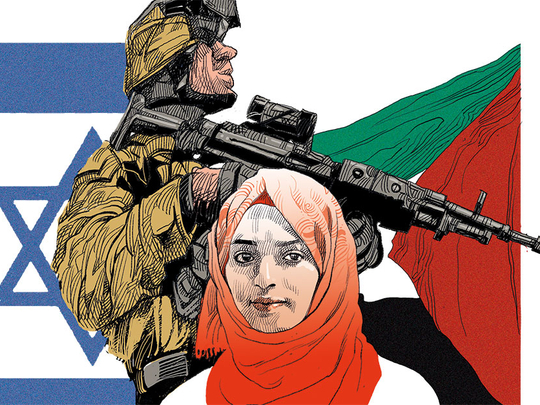
The UN general assembly has condemned Israel for using “excessive force” against unarmed civilian demonstrators in Gaza. The draft resolution was adopted last Wednesday by 120 votes to eight, with 45 abstentions. The opposing states included the US, which had vetoed a similar resolution at the Security Council a few days earlier.
Most significantly, the resolution called on UN Secretary General Antonio Guterres to report back within 60 days “on ways and means for ensuring the safety, protection and wellbeing of the Palestinian civilian population under Israeli occupation, including recommendations regarding an international protection mechanism”.
Of course the UN is only ever as effective as member states allow it to be. This old saw has been particularly true when it comes to Israel and the occupied Palestinian territories, where the UN’s responsibility for, but failure to bring about, the creation of a Palestinian state as part of a “two-state solution” is so glaringly obvious. Israeli forces continue to act with near impunity, seemingly beyond the reach of international law. The 120 recorded recent killings include the 21-year-old volunteer paramedic Razan Al Najjar, shot in the chest and killed near the separation wall between Israel and Gaza. Her only defence was her white medic’s tunic. Her apparent “crime”: assisting unarmed demonstrators who’d been shot and were writhing in agony on the ground.
The likelihood of the Israeli sniper being brought to justice is extremely slim. Indeed, it seems more likely that planned new legislation that would bar the reporting of such incidents in the media could soon be enacted if Benjamin Netanyahu’s administration gets its way.
We appear to be living in increasingly lawless times. Article 24 of the Geneva Convention states: “Medical personnel exclusively engaged in the treating of wounded shall be respected and protected in all circumstances.” But in general, talk of the Geneva Convention – when civilians can be targeted with barrel bombs by state authorities in Syria, and unarmed demonstrators are shot at by Israeli army snipers – just serves as a reminder that leaders from Netanyahu to Al Assad, from Putin to Duterte, will do whatever they like if they can get away with it.
Those countries who still have some clout on the UN Security Council and influence with European governments should begin to throw their weight around and push for something altogether more substantial than the protection force favoured by a majority of UN member states.
Full independence
In the case of Israel’s flagrant disregard for the civilians it is supposed to be protecting, it is surely time to draw up a brand new mandate for a UN force and administration in the Occupied Territories. This could protect Palestinians, and also organise long overdue elections to prepare the territories for full independence. It could be a fully fledged UN mandate, perhaps similar to the former UN Integrated Mission in Timor-Leste (formerly East Timor) that successfully paved the way for the ending of Indonesian rule, which itself followed hundreds of years of Portuguese colonial rule. This intervention by the UN paved the way for free and fair elections and independence.
The idea of a UN mandate elicits backing from Nadia Hijab, of the Palestinian thinktank Al Shabaka, who says: “A UN mandate over the Occupied Territories is worthy of serious consideration. Israel has made no secret of its project to colonise and annex occupied territory, and indeed has annexed Palestinian East Jerusalem and Syria’s Golan Heights. Colony building and annexation are unlawful and mean continued destruction of lands, homes, and lives. A UN mandate would provide protection not just for Palestinians, but for all those living within and beyond the Occupied Territories.”
To which might be added the need to recognise the special status of [occupied] Jerusalem, an issue that Donald Trump has blundered into by recognising the city as Israel’s “capital”. The “mandate” refers to the British rule of Palestine sanctioned by the League of Nations after the First World War. When Palestine was officially partitioned by the UN following the ending of the British mandate in 1948, Jerusalem was to be a corpus separatum, and was supposed to remain under UN administration. This never happened, but maybe it is now time for the responsible international community to put this firmly back on the table as the precursor to providing a full UN mandate over all the Occupied Palestinian Territories.
What do the Europeans in particular have to lose by championing this just and entirely pragmatic cause? Europe’s leaders could bask in the warm, unfamiliar glow of widespread international approval. And more important, the forgotten, oppressed Palestinians may be able to conclude that there is some hope and justice for them after all.
— Guardian News & Media Ltd
Mark Seddon was a speechwriter for the former UN secretary general Ban Ki-moon. He is currently a visiting lecturer in international and public affairs at Columbia University, New York.










